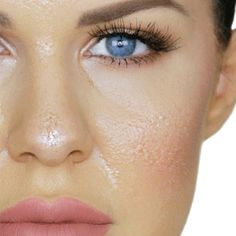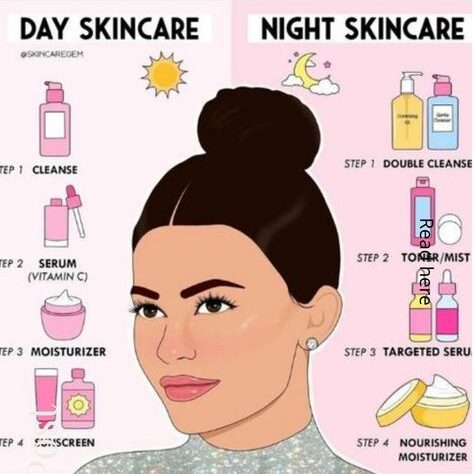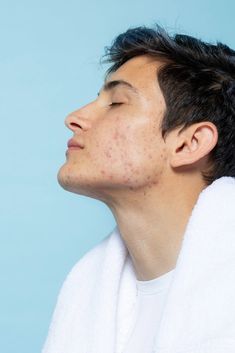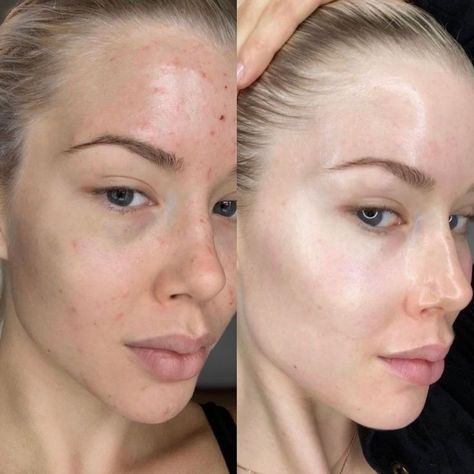Skin Problems and Solution
Skin problems encompass a vast array of conditions, ranging from mild irritations to severe disorders that can significantly impact one’s quality of life. Understanding these conditions and their respective treatments is essential for maintaining healthy skin. In this comprehensive guide, we’ll delve into common skin problems, their causes, symptoms, and available treatments.
Acne

Causes: Acne typically occurs when hair follicles become clogged with oil and dead skin cells. Hormonal changes, genetics, certain medications, and dietary factors can contribute to its development.
Symptoms: Acne presents as pimples, blackheads, whiteheads, and inflamed red lesions on the face, chest, back, and shoulders.
Treatment: Treatments range from over-the-counter topical medications containing benzoyl peroxide or salicylic acid to prescription-strength treatments like retinoids, antibiotics, and oral contraceptives. In severe cases, isotretinoin may be prescribed.
Eczema (Atopic Dermatitis)
Causes: Eczema is believed to be caused by a combination of genetic and environmental factors. It often occurs alongside other allergic conditions such as asthma and hay fever.
Symptoms: Symptoms include dry, itchy, inflamed skin that may appear as red patches or blisters. Eczema flare-ups can be triggered by allergens, stress, and irritants.
Treatment: Moisturizers, corticosteroid creams, and ointments are commonly used to relieve symptoms and reduce inflammation. In severe cases, immunosuppressants or phototherapy may be recommended.
Psoriasis

Causes: Psoriasis is an autoimmune disorder characterized by rapid skin cell turnover. Genetics, environmental factors, and immune system dysfunction play roles in its development.
Symptoms: Psoriasis presents as thick, red patches of skin covered with silvery scales. It commonly affects the scalp, elbows, knees, and lower back.
Treatment: Topical treatments like corticosteroids, vitamin D analogs, and coal tar preparations can help manage mild to moderate psoriasis. For severe cases, oral medications, biologics, and phototherapy may be prescribed.
Rosacea
Causes: The exact cause of rosacea is unknown, but factors such as genetics, abnormal blood vessel function, and certain triggers like sun exposure, alcohol, and spicy foods can exacerbate symptoms.
Symptoms: Rosacea symptoms include facial redness, visible blood vessels, acne-like bumps, and eye irritation.
Treatment: Topical treatments such as metronidazole and azelaic acid can help reduce inflammation and redness. Oral antibiotics may be prescribed for more severe cases, and laser therapy can target visible blood vessels.
Dermatitis
Causes: Dermatitis refers to inflammation of the skin, which can be caused by allergic reactions, irritants, or genetic factors.
Symptoms: Symptoms include redness, itching, swelling, and sometimes blistering or oozing of the skin.
Treatment: Avoiding triggers is key to managing dermatitis. Topical corticosteroids, antihistamines, and moisturizers can help relieve symptoms. In severe cases, oral corticosteroids or immunosuppressants may be prescribed.

Skin Cancer
Causes: Skin cancer occurs when skin cells undergo abnormal changes due to exposure to ultraviolet (UV) radiation from the sun or tanning beds. Other risk factors include a history of sunburns, fair skin, and a family history of skin cancer.
Symptoms: Symptoms vary depending on the type of skin cancer but may include changes in the size, shape, or color of moles, sores that don’t heal, or new growths on the skin.
Treatment: Treatment options for skin cancer include surgery, radiation therapy, chemotherapy, immunotherapy, and targeted therapy. Early detection and treatment are crucial for a successful outcome.
Treatment Approaches
- Topical Treatments: Many skin conditions can be managed with topical treatments such as creams, ointments, and gels applied directly to the affected area.
- Oral Medications: Oral medications may be prescribed for more severe or widespread conditions, providing systemic relief from symptoms.
- Lifestyle Changes: Making lifestyle modifications such as avoiding triggers, maintaining a healthy diet, managing stress, and protecting the skin from UV radiation can help prevent and manage various skin problems.
- Medical Procedures: Medical procedures such as laser therapy, phototherapy, chemical peels, and surgical interventions may be recommended for certain skin conditions that don’t respond to conventional treatments.
- Complementary Therapies: Some individuals find relief from skin conditions through complementary therapies such as acupuncture, herbal remedies, and aromatherapy. However, it’s essential to consult with a healthcare professional before trying these approaches.
In conclusion, understanding the causes, symptoms, and treatment options for common skin problems is essential for maintaining healthy skin and overall well-being. By adopting preventive measures, seeking timely medical care, and adhering to treatment regimens, individuals can effectively manage various skin conditions and enjoy healthier, happier skin.


